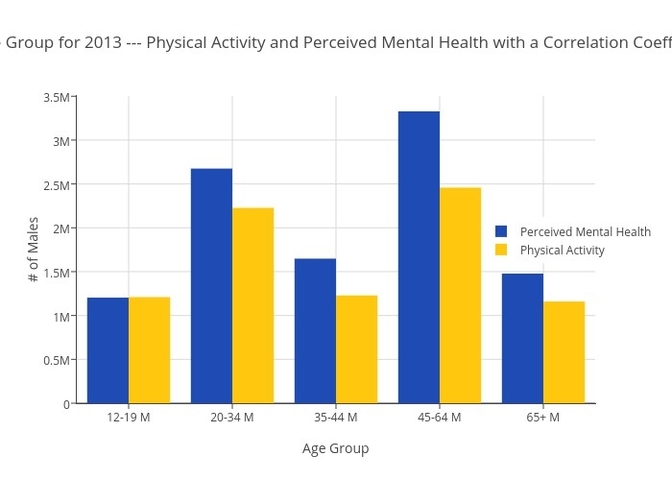Physical Activity and Perceived Mental Health
Physical activity plays a crucial role in promoting mental health. It has been linked to improved brain health, cognitive function, reduced risk of anxiety and depression, and enhanced sleep and overall quality of life.
Mental Health Benefits of Physical Activity
1. Stress and Anxiety Reduction: Physical activity decreases stress hormones like cortisol and increases endorphinsyour body’s “feel-good” chemicalsgiving your mood a natural boost. Exercise also decreases sensitivity to the body’s reaction to anxiety.
2. Depression: Light, moderate, and vigorous exercise have been shown to reduce the severity of depression. Exercise may be as effective as other treatments for depression.
3. Cognitive Function: Regular physical activity can help keep your thinking, learning, and judgment skills sharp as you age.
4. Sleep Quality: Physical activity can improve sleep quality, which is essential for mental health.
Physical Activity during the COVID-19 Pandemic
The COVID-19 pandemic has highlighted the importance of physical activity for mental health. Increasing physical activity and decreasing sedentary behavior have positive effects on mental well-being and are associated with reduced symptoms of depression and anxiety. However, movement behaviors and mental health status worsened among Canadians during the COVID-19 pandemic due to measures such as school and recreation closures.
Promoting Physical Activity
Promoting physical activity can help optimize both physical and mental health. This may be facilitated by providing publicly accessible and proportionally distributed indoor and outdoor recreation spaces, as well as supporting policies which address the relationship between the built environment and physical activity.
Conclusion
Physical activity is a powerful tool for enhancing mental health. It can alleviate symptoms of mental health conditions and improve overall well-being. As our understanding of the relationship between physical activity and mental health continues to grow, it becomes increasingly clear that promoting regular physical activity is a vital strategy for maintaining mental health.


